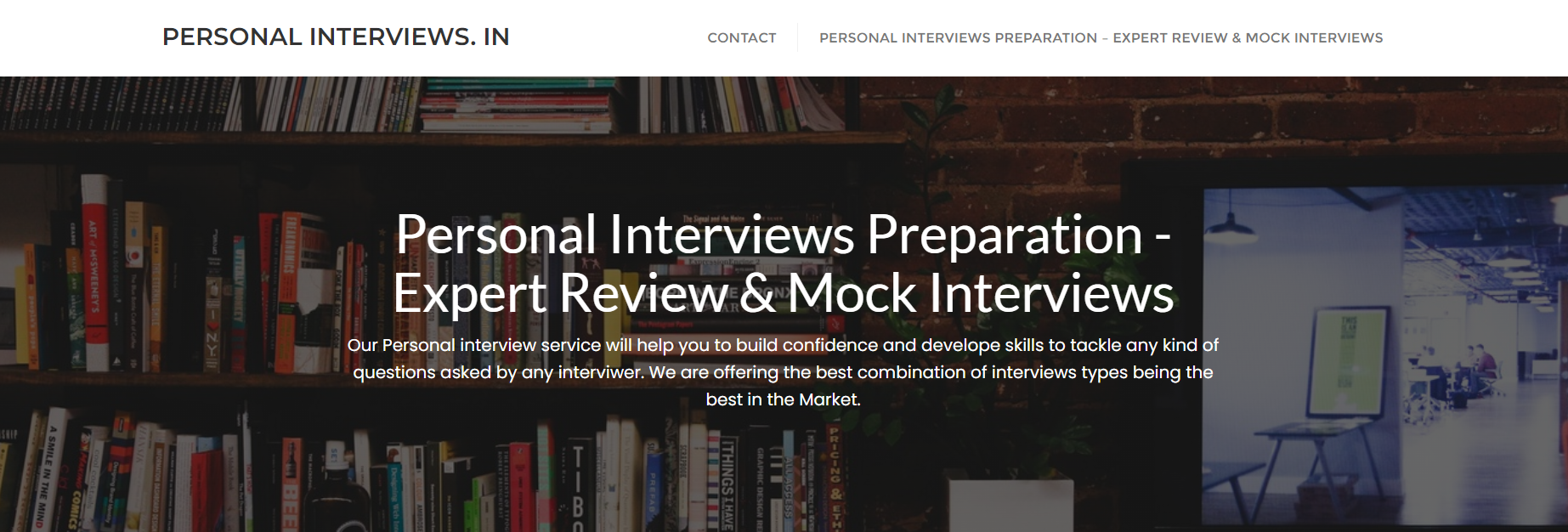Interview Preparation For Freshers – Tips and strategies for success

Introduction of Interview preparation for freshers:
Entering the job market as a fresher can be both exciting and daunting. The interview process is a crucial step towards landing your first job, and proper preparation can make a significant difference. This guide provides practical tips and strategies to help you prepare effectively for interviews and boost your confidence.
1. Understand the Job Description for Interview Preparation For Freshers
Before applying for any position, thoroughly read the job description. Understand the skills, qualifications, and responsibilities required. This will help you tailor your resume and prepare for potential interview questions.
2. Research the Company of Interview Preparation For Freshers
Gain a deep understanding of the company you are interviewing with. Research its mission, values, products, services, and recent news. Familiarize yourself with its industry position and competitors. This knowledge will allow you to answer questions more confidently and show genuine interest in the company.
3. Resume and Cover Letter Preparation for Interview Preparation For Freshers
Your resume and cover letter are your first impressions. Ensure they are well-organized, free of errors, and highlight your skills and achievements relevant to the job. Customize your resume for each application to align with the job description.
4. Practice Common Interview Questions for Interview Preparation For Freshers
Prepare answers for common interview questions such as:
- Tell me about yourself.
- Why do you want to work here?
- What are your strengths and weaknesses?
- Describe a challenging situation and how you handled it.
Practice your responses to these questions, focusing on providing concise and relevant answers.
5. Prepare for Behavioral Questions
Behavioral questions assess how you’ve handled situations in the past. Use the STAR method (Situation, Task, Action, Result) to structure your answers:
- Situation: Describe the context within which you performed a task or faced a challenge.
- Task: Explain the actual task or challenge involved.
- Action: Describe the specific actions you took to address the task or challenge.
- Result: Share the outcomes or results of your actions.
6. Technical Preparation
If you are applying for a technical role, ensure you are well-prepared for technical questions or tasks. Review relevant concepts, practice coding problems, or refresh your knowledge on technical skills mentioned in the job description.
7. Mock Interviews
Conduct mock interviews with friends, family, or mentors. This practice can help you get comfortable with the interview format and receive constructive feedback on your performance.
8. Dress Appropriately
First impressions matter. Dress professionally, adhering to the company’s dress code if known. When in doubt, opt for business casual or formal attire.
9. Plan Your Journey
If the interview is in-person, plan your route and travel time to arrive early. For virtual interviews, ensure your equipment (camera, microphone, internet connection) is working correctly, and choose a quiet, well-lit location.
10. Prepare Questions for the Interviewer
Have a few thoughtful questions ready to ask the interviewer. This shows your interest in the role and helps you gather more information about the company. Some questions could include:
- What does a typical day look like for this role?
- Can you tell me more about the team I will be working with?
- What are the opportunities for growth and development?
11. Follow-Up
After the interview, send a thank-you email to express your appreciation for the opportunity. Reiterate your interest in the position and mention a key point from the interview that reinforced your enthusiasm.
Conclusion
Effective interview preparation involves a combination of research, practice, and confidence. By following these tips, freshers can approach interviews with greater assurance and increase their chances of securing their desired job. Remember, every interview is a learning experience, so stay positive and keep improving with each opportunity.


